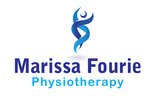Perhaps the most irritating factors about sports injuries is the need to rest. Whether amateur or professional, those who are serious about their sport find it very hard to stay away from the track or trail for long time periods. Many still firmly believe in the no-pain-no-gain-theory, and force themselves onwards, regardless of pain. Unfortunately, if you do not allow yourself enough good quality recovery time, proper healing is unlikely to take place, and the chances for re-injury in future are just so much bigger. But then when is a good time to return to sport after injury?
First, you need to analyse your motivation to get back on track. Why exactly is it so important to you? Are you afraid of deconditioning, picking up weight or for the deterioration of your health? Is it perhaps the social and recreational component? Or is your sport a source of income, and being unable to participate adds financial pressure? Whatever your reason, it is important to outweigh the risks and benefits of when you return. Going back too soon might mean that you miss the rest of the season due to re-injury, or you may be delaying proper healing over the long term. Returning to sport greatly depends upon the nature and severity of your injury. Fractures or total ligament tears will obviously need certain amounts of time to heal as determined by your medical professional. Strains and sprains will take less time, but should also not be underestimated in severity. Also, the level at which you are participating will determine your required level of conditioning before you can return. It is important to bear in mind the stages of inflammation and recovery. 1) Acute inflammatory phase – This is what happen immediately after the injury to about 72 hours after the injury. It is an inflammatory response that is causes pain, swelling, redness and warmth around the injured area. This is your body’s way of protecting itself. The swelling causes stabilization in the area, just like when you can’t move your neck after a car accident. The area gets warmer because blood is being pooled in the area that actually causes the swelling. There are also chemical signals to have “search and debris from the injured tissue or bacteria that may have made its way into the area that might cause an infection. This reaction does not take place in a chronic type might cause an infection. This reaction does not take place in a chronic type injury, like the pain in a person’s wrist after typing too much. 2) Repair Phase – this is when the inflammation has gone down and your body begins to repair the injured area. Your body will begin to lay down collagen to replace the damaged tissue structure. Oxygen and vitamin C are necessary to aide in the collagen formation. This process last from 72 hours to six weeks after the injury. The structure of the collagen is unorganized at this point. 3) Remodeling Phase – once the collagen has been regenerated in the second phase of healing, it is not is an alignment that will be very capable of withstanding any stresses placed on it. The collagen is similar to sticky glue at first. It needs to be molded in certain alignments in order to be able to perform the functional capabilities of the tissue it is replacing. This phase is largely one of an improvement in the quality, orientation and tensile strength of the collagen. This phase last from 3 weeks to 12 months (some research is showing up to 2 years).
1 Comment
|
AuthorMarissa Fourie is a physiotherapist in Stellenbosch with a special interest in musculoskeletal conditions, pediatrics, and post/prenatal health. Archives
March 2016
Categories
All
|
||||||

 RSS Feed
RSS Feed